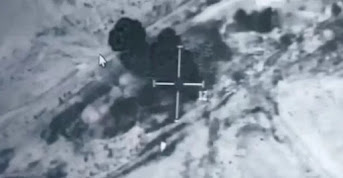Amnesty now calls Israel an "apartheid state". That seems destructive, but it also shows that little has changed in the country's government policies.
When Amnesty International's human rights activists announce their verdict, they are not doing justice, but they are shaping the debate worldwide. Now it is: Israel is committing the crime of apartheid against the Palestinians. That's in the title of the new report that Amnesty released on Tuesday.
It goes far beyond the usual criticism of Israel's occupation policy, it is tantamount to a request to see Israel in a new light: not as a democratic state that also maintains a problematic military regime, but as an essentially discriminatory order. Amnesty calls for a halt to arms deliveries to Israel and for trials against those responsible in Israel. This is a real turning point.
Not because Amnesty's assessment is new. The great public uproar surrounding "apartheid" began last year when the Israeli organization B'Tselem and then Human Rights Watch published reports similar to those now published by Amnesty. But because Amnesty's report falls into a supposedly new era: the time after Benjamin Netanyahu.
 |
| Ukraine Increases The Army |
Something like relaxation had just set in. Since the notorious Bibi had to resign as prime minister last June, Israel's government has been more affable - and the situation is already appearing more relaxed to viewers in the West.
The declared goal was a solution to the conflict
Amnesty obviously wants to counteract this and uses a term that will definitely cause a sensation: Apartheid, according to international law, is a crime against humanity. It obliges all states to act. In a debate already marked by yelling and polemics, Amnesty makes as much noise as possible and risks discrediting itself. Why the noise? What remains when it wears off?
Apartheid: Under international law, this is, firstly, a state of particularly severe systematic discrimination coupled with, secondly, the intention to uphold it. As a political concept, accusation is primarily a means of generating political momentum: "apartheid" is there to be overcome.
In Israel and Palestine, "apartheid" has been a warning for the longest time. Yitzhak Rabin, for example, who, as Prime Minister in 1976, warned that Israel had to change its attitude towards the Palestinians or it would become an apartheid state. Apartheid, that was a future that had to be prevented.
 |
| The Olympic Games & Ukraine Crisis |
The systematic displacement of Palestinians took place and was also loudly demanded by parts of Israeli politics, but that faded into the background in rhetoric. The declared goal was a solution to the conflict, peace. Even politicians who sabotaged the peace process ostensibly committed themselves to a two-state solution. Even the blustering Benjamin Netanyahu.
No change of course has taken place in Israel
Compared to him, refreshingly little has been heard from his successor Naftali Bennett abroad since he took office last summer. Not the same ranting against Iran, no Trump-like outbursts. Instead, Bennett talks about "shrinking" the conflict with the Palestinians; For the first time in Israel's history, his government also includes an Arab Islamist party. Israeli President Yitzchak Herzog has just returned from a state visit to the United Arab Emirates.
 |
| Russian Military Presence In Belarus |
That sounds more like it's going in the right direction again - and then Amnesty comes up with "crimes against humanity"? Even those who share the assessment of systematic discrimination have to ask themselves whether it's simply politically counterproductive to play it up now.
This is where the political explosive power of the Amnesty report lies: that it shows nothing new. There has just been no change of course in Israel, on the contrary. What was considered a development in an unfavorable direction in the Netanyahu era is the natural basis of government policy in the Bennett era. That's why you hear so little.
Bennett is not anti-Netanyahu. It was he who drove Bibi in front of him from the right in recent years in office. Bennett was chairman of the right-wing nationalist settlers' association. He was already calling for the annexation of Palestinian territories when Netanyahu was still silent with Barack Obama.
 |
| UAE: Ballistic Missile Attack By Houthi |
Bennett doesn't make pacts with an Arab party because he wants to make concessions to the Palestinians, but because he doesn't have to fear having to make them. (The Arab Ra'am party is socially conservative, just like Bennett's: culture fighters understand each other.) He explicitly rules out political negotiations with the Palestinian leadership.
The most striking trend in Israeli-Palestinian relations in the early months of the Bennett administration has been the increase in violence by extremist settlers against Palestinians. Bennett described these settlers in front of the Knesset as "all of our protective walls". These days his government is implementing eviction orders in East Jerusalem and the Negev desert that all previous governments balked at.
 |
| 'Houthi Rebels Targeted US Military Base In Abu Dhabi' |
Israel's reconciliation agreements with several Arab states, most notably the Emirates, have broken with the old Arab front against Israel. The major lines are now being laid down by the new partners, and they see the Palestinians above all as an unresolved problem that can only be kept as calm as possible. The Palestinian majority society sees itself completely entangled in the many strands of disenfranchisement and occupation, in the military courts, the all-encompassing surveillance, the empty words of its own corrupt leadership, the consumer loans that have to be paid off.
Amnesty moves the term further into the center of the debate
The reports from Amnesty and other civil rights groups soberly dissect the conditions in Israel and Palestine. They describe in detail the regime of different legal systems for Israelis and Palestinians, the violence, the isolation of two million people in the Gaza Strip. They document - which was never a taboo in Israel itself - that the guidelines for authorities speak of the "Judaization" of entire regions, of Palestinians as a "demographic threat". In view of the political balance of power, mentioning apartheid makes nothing but noise and only makes the defendants' defensive attitude harder.
But the report is not aimed at them either. Rather, the noise should aim to bring together those who already share Amnesty's assessment of the situation and do not know how to proceed. These are not only human rights activists, who have a hippie image attached to them, but also a new generation of political analysts, diplomats and politicians, also in Germany.
They don't initially associate Israel with a reconciliation project, but with day-to-day politics, and they've been using the legal concept of apartheid for a long time, just not publicly. Amnesty's report puts the term a little more at the center of the debate, making it easier for them to speak.
He also points out a possible change of strategy: there is currently no effective action to be taken on the ground against the existing oppression, and certainly not in the near future.
But more pressure can be put on Israel's western allies. This is exactly what Amnesty is calling for. And such calls are only likely to increase once the noise surrounding the report has subsided.
Do You Know What We Have Posted on

















No comments:
Post a Comment